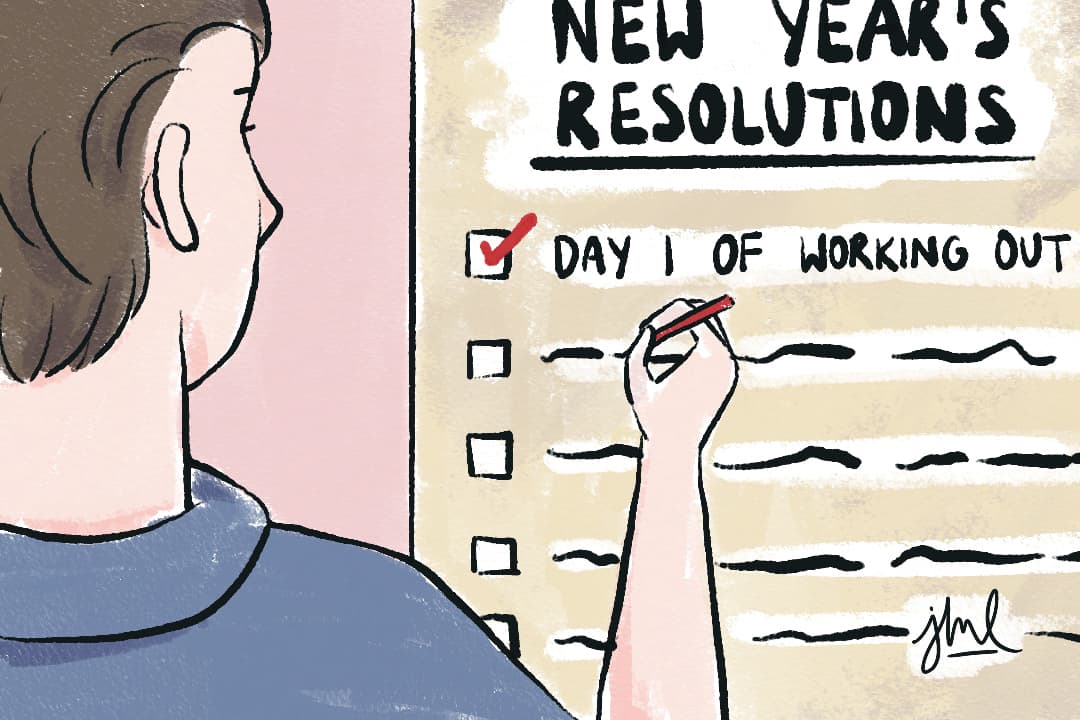“From tomorrow on, I will begin discovering new places.” “I just attended a food festival — tomorrow, I will finally begin my diet.”
These are just some examples of the resolutions we make to develop new habits — but why don’t we always follow through on them?
It is very common to set goals around temporal landmarks and special events like birthdays or the first day of summer. When you feel the sudden urge to turn your life around after such an event, you are experiencing the ‘fresh start effect.’ The fresh start effect is a phenomenon in behavioral economics that explains why people are more likely to want to set goals if the goal setting is associated with some temporal landmark, such as a New Year.
Reaching for the stars overnight
How is it that so many people start envisioning goals on their birthday that they would not have thought of a day ago? According to Bing Feng, associate director of the Behavioral Economics in Action at Rotman (BEAR) Center, there are two main reasons why people experience this surge in motivation on certain days or times.
Feng — who is also an instructor of the BEAR lab course at Rotman Commerce — discussed how the fresh start effect affected her daily life after the 2022 new year. She explained that she took it upon herself to exercise more and order less takeout.
She believes that temporal landmarks such as special events help “create a separation [between] our past self, current self, and future self.” Our goals stem from not particularly liking a behaviour we have observed in our past selves — such as repeatedly ordering takeout.
Feng explains that temporal landmarks give us — our current selves — “the opportunity … to pause and reflect [on] the past.” In doing so, we imagine a better version of ourselves in the future — like a version of Feng who orders less takeout and cooks more. A Wharton study shows that new beginnings are also fostered by our desire to compensate for the undesirable behaviours we displayed before we reached these time milestones.
Another reason for this behaviour could be that special occasions are a “creative disruption” to our day-to-day lives, according to Feng. The disruption of an event changes our daily activities for a period of time and triggers thoughts about starting a new routine. For example, the pandemic was a sudden shock to all our routines — and it made us think about our future selves and our ideal habits.
New year, same me?
It’s not uncommon to set a New Year’s resolution one year, only to end up setting the same goal at the end of that year when you’re making resolutions for the next one. Unsurprisingly, sticking to ambitious habits is easier said than done.
“Some reasons are related to the goal itself,” says Feng. Very often, our goals are nothing more than a pipe dream. “I wasn’t so excited about [exercising] indoors… So how can I expect of myself that, because of the pandemic, all of a sudden I [will] become super interested in doing indoor exercise? That’s not realistic.”
In other cases, goals may be too vague. When Feng decided to make a habit of cooking, she did not set out any targets to achieve that goal. “I just said I wanted to cook more — but how much more?”
Setting ourselves up for success involves a lot of strategic planning, which is even more difficult to maintain when we combine our desired larger goals with a seemingly endless list of other small goals. Feng explains that tackling “one goal at a time” is the best way to help us sort through the goal.
It is essential to track your progress and find an action that nudges you to stick to a goal. Feng’s goal of exercising is easier to stick with if her sister encourages her to go for walks on the weekends. Involving others in your goals can create a “social lock” to help you keep up with the goal.
Our need for instant gratification
Richard Thaler, Nobel Prize-winning economist, has developed a ‘planner-doer model,’ which states that every person is both a planner — setting long-term goals for later gratification — and a doer — choosing their current actions based on the current value they bring them. We may want to set up our future selves for joy and pleasure, but it is difficult for our doer selves to sacrifice immediate gratification to do so.
In behavioural economics, there’s a notion called ‘hyperbolic discounting,’ in which present rewards are weighted more heavily than future ones, explains Feng. For example, we tend to buy impulsively when we would like to save money.
It is human nature to procrastinate and forget — but we must always strive to close the intention-action gap in order to take care of our future selves.


